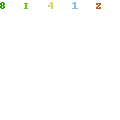
LONDON’S newest landmark, the Shard, is more than Europe’s tallest building – it is a symbol of a dramatic shift in world power.
Owned by the tiny Gulf state of Qatar, the Shard is the tip of cash-rich Qatar’s investment iceberg in Britain.
With an income which makes Bob Diamond seem like a Big Issue seller, Qatar had enough cash to buy 20 per cent of Barclays while adding other blue chips to their portfolio.
In London alone, the Muslim emirate has been buying up everything from Chelsea Barracks to the new Olympic Village.
Qatar failed in its bid to stage the Olympics but it will be home to the World Cup in 2022. Its own teams haven’t made a mark on the world of soccer but sponsorship of Barcelona has made Qatar a global footie brand.
With billions in revenue from natural gas, Qatar’s ruling al-Thani family could have been just rich Arabs on a buying and bling spree.
Of course, like other rich Arabs in London, the Qataris go in for plenty of the “off with the chador” and foot down on the pedal of the Lamborghini but the tiny emirate punches above its weight in world politics. Britain used to “protect” the Persian Gulf state. Now the Emir helps our economy out in return for backing his foreign policy.
Qatar is tiny, with barely 200,000 “citizens”, serviced by swarms of migrant workers but it is really a family business.

Any position of importance is held by a member of the ruling al-Thani clan.
From the start of the “Arab Spring”, they promoted democracy — admittedly abroad, but you have to start somewhere.
Last year their special forces blazed a trail for democracy in Libya and they are helping rebels in Syria.
But back home, the micro-state’s security services take a close interest in any sign of dissent. Six out of seven people are Third World migrant workers — many of them women — with no real rights.
Some are highly paid journalists at the Emir’s pet project, the Al Jazeera satellite television station, which broadcasts Qatar’s message around the world. With an average annual income of around one hundred thousand dollars a head, the native Qataris see little profit in promoting democracy at home which might put ideas in their servants’ heads.

Abroad, the regime has been promoting Islamic parties in the new Middle Eastern democracies. Their cash subsidises the new Islamic political parties which have won elections in Egypt and Tunisia.
Saudi Arabia and Iran are the local giants, each with a claim on Qatar’s territory.
Fortunately for Qatar, the Saudis and the Ayatollahs are bitter rivals who would never accept the other one gobbling up the tiny emirate. But if they ever clash, then Qatar could find itself a highly inflammable frontline statelet.
To make matters more uncertain, America is Qatar’s protector but it is also determined to stop Iran getting “the bomb”. If Washington bombs Tehran’s nuclear projects, Iran could lash out at Qatar. The nation’s lavish investments here are insurance against a rainy day in the Gulf.
The gas will one day run out but it could explode in the ruling family’s face if the region’s big boys get into a scrap.

Tiada ulasan:
Catat Ulasan